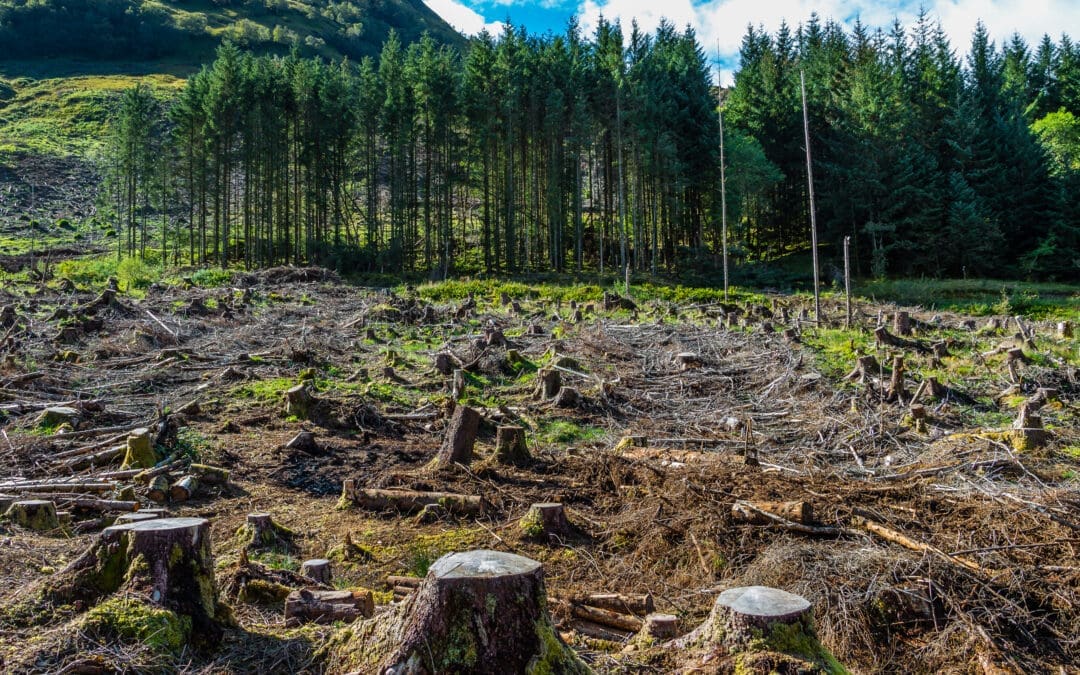2021 has brought an increased drive for corporate sustainability, from mitigating GHG emissions and promoting DE&I to preventing deforestation. These measures are not only critical for the future of the planet; they’re critical for the future of your company, too. Supply chains account for the vast majority of any organization’s sustainability impact, and companies around the world are waking up to the need to improve social and environmental conditions with their suppliers.
However, if businesses really want to accelerate the sustainability transformation, they can’t go about it alone. Industry groups are one of the best ways for companies to put their heads together and solve common issues, helping them achieve net-zero supply chain emissions, drive visibility into sub-tier suppliers, and collaborate on any number of ESG issues. To help you find the right initiatives to get involved in, we’ve put together a list of industry groups working to accomplish greater sustainability in supply chains across every sector.
Procurement and Supply Chain
Aim-Progress: This forum of Fast-Moving Consumer Goods (FMCG) manufacturers and suppliers promotes responsible sourcing practices and sustainable supply chains. By giving suppliers the knowledge, confidence, and ability to execute robust responsible sourcing programs, Aim-Progress has achieved major progress in protecting human rights in supply chains around the world. Forty-three major global brands count themselves as forum members—including The Coca-Cola Company, Church & Dwight, Danone, and many more.
Pharmaceutical Supply Chain Initiative (PSCI): An industry-leading group of pharmaceutical professionals, PSCI focuses on fair and safe working conditions, responsible business practices, and environmental sustainability. Their PSCI Principles set supply chain industry guidelines to articulate what the industry expects from supply chains, and they provide great audit collaboration opportunities through their platform.
Sustainable Procurement Pledge (SPP): Closing in on membership of 5,000 procurement professionals, SPP is a pro-bono community that intends to empower and equip procurement leaders with the tools to embed sustainable procurement practices in all global supply chains by 2030. For more info, join their Sustainable Procurement Ambassadors LinkedIn group.
CPGs and Retail
The Sustainability Consortium: TSC is a global non-profit organization helping members drive transparency and sustainability in consumer goods supply chains. Partnering with us to manage THESIS (The Sustainability Insights System), TSC and SupplyShift are helping retailers measure KPIs across 115 different consumer goods categories, and 90% of consumer goods supply chains. Outside of THESIS, TSC provides a wealth of resources, tools, and services to help their members drive progress in consumer product sustainability.
The Consumer Goods Forum: The Consumer Goods Forum brings consumer goods retailers and manufacturers together globally to drive change. They have eight key coalitions, including the Sustainable Supply Chain Initiative, a leading industry source for defining social sustainability criteria in supply chains.
Foundation for Supply Chain Solutions: F4SS is an organization focused on transforming external supply chains within the CPG industry. Their goal is to establish a forum whereby CPG/FMCG customers, external manufacturers, and secondary packagers can share best practices and create industry standards to improve efficiency, quality, and sustainability while reducing overall supply chain costs.
Responsible Business Alliance: RBA is a nonprofit composed of electronics, retail, automotive, and toy companies committed to supporting the rights of workers and communities affected by global supply chains. Through their three key initiatives, RBA regularly engages in dialogue and collaboration with workers, governments, investors, and academia to gather fair and balanced information to help members achieve the RBA mission.
Retail Industry Leaders Association: RILA is the U.S. trade association for leading retailers. Through their eight key focus areas (asset protection, public policy, legal affairs & compliance, supply chain, workforce, technology & innovation, sustainability & the environment, and finance), they aim to advance growth and sustainability and focus on social aspects in addition to environmental concerns.
Climate
CDP: CDP is a global organization that helps cities, regions, and companies measure and manage their environmental impact. They give users a score that helps incentivize them to become leaders in transparency and correct issues. Over two decades CDP has developed a system that is highly regarded, and has a program specifically focused on supply chain membership.
Science Based Targets (SBTi): The SBTi is a partnership between CDP, the United Nations Global Compact, World Resources Institute, and WWF that uses science-based targets to show organizations how much and how quickly they need to reduce their GHG emissions to keep us within planetary boundaries. SBTi defines best practices, gives technical assistance, and provides expert-level resources to companies looking to make changes.
World Wildlife Fund: WWF engages with major companies and their supply chains to ensure climate and biodiversity are protected, changing the way global commodities are produced, processed, consumed, and financed worldwide. Its recent Emission Possible campaign helps businesses tackle emissions reporting and better understand their climate impact.
Rainforest Alliance: An international nonprofit organization working at the intersection of business, agriculture, and forests, Rainforest Alliance works in 70+ countries worldwide to mitigate the climate crisis and other ecological issues through program development, certification, and more. Recently, the alliance helped launch SupplyShift’s Responsible Soy, Paper, and Wood Assessments to offer additional supply chain sustainability solutions. Learn more about Rainforest Alliance’s work in the business community here.
Supplier Leadership on Climate Transition: Supplier LoCT was formed by Guidehouse, Mars, McCormick & Company, and PepsiCo to help engage suppliers in climate action and solutions based on science-based targets. This coalition is unique in its effort to bring suppliers to the table in conversations around decarbonization.
Agriculture and Forest Products
Earthworm Foundation: Earthworm Foundation’s members are committed to making supply chains in the biomass, charcoal, cacao, coconut, cotton, fragrances, hazelnuts, pulp and paper, seafood, and palm oil industries more sustainable. Partnering with SupplyShift, Earthworm launched its Engagement for Policy Implementation (EPI) tool, an assessment and engagement process for responsible palm oil sourcing. If you’re curious about our work with Earthworm Foundation, download our case study.
Bonsucro: With members like Hershey, Nestlé, Unilever, and General Mills, Bonsucro accelerates sustainable sugarcane production, processing, and trade by offering resources, tools, services, certifications, and a business network for sustainable sugarcane. Bonsucro has partnered with SupplyShift to create industry-leading tools for sustainable sugar mapping, certification, trading, and more. Our Sugar Mapping Tool helps companies to map and assess all sources of sugar, including non-certified supply chains, at every tier down to the mill.
Responsible Sourcing Network (RSN): Dedicated to ending human rights abuses and forced labor associated with raw materials, RSN recently launched the initiative YESS: Yarn Ethically and Sustainably Sourced to tackle modern slavery in cotton production. They’ve created due diligence verification systems with cotton yarn spinners to identify and mitigate supply chain risks. We’ve also partnered with RSN to create a forced labor risk flagging tool for cotton. To learn more, check out our YESS Cotton Sourcing Risk Screen.
SAI Platform: SAI Platform brings together over 130 members leading the way in sustainable agriculture worldwide. The goal is to ensure agricultural components in products are from sustainable sources, and their Farm Sustainability Assessment tool standardizes farm assessments using simple questions. The questions are identical in all product categories, making FSA a transparent and fair tool. SupplyShift has implemented the Farm Sustainability Assessment on our platform, so SAI members can deploy the tool using SupplyShift technology.
Apparel
Textile Exchange: Textile Exchange is a global nonprofit that works closely with its members to transform their preferred fibers, integrity and standards guidelines, and supply networks. Created in partnership with Textile Exchange, our Textile & Apparel assessment seeks to provide Textile Exchange companies, such as Allbirds, Adidas, and Amazon, with critical insight into their apparel supply chains.
Social & Labor Convergence Program: SLCP aims to eliminate audit fatigue in the apparel and footwear industry. The platform provides the tools and systems to provide a standardized dataset, increasing transparency in labor practices and social practices in supply chain.
American Apparel & Footwear Association: AAFA is the trusted public policy and political voice of the apparel and footwear industry, focusing on three key areas: brand protection, supply chain/manufacturing, and trade. AAFA enables a collaborative forum to promote best practices and innovation in apparel and footwear, including best practices around social and environmental sustainability.
Sustainable Apparel Coalition: SAC has developed the HIGG index, a suite of tools to standardize measurements of supply chain sustainability in apparel, footwear, and textiles. Brands, retailers, manufacturers, governments, NGOs, and consumers can use the five tools of the HIGG Index to inform their individual sustainability strategies and drive collective industry transformation.
Other
Business for Social Responsibility: BSR is an organization of sustainable business experts that works with its global network of leading companies to build a just and sustainable world. Services include sustainability consulting, collaboration, membership, and research. BSR has several collaborative initiatives, such as the Global Impact Sourcing Coalition, which builds more inclusive global supply chains.
Sustainable Sourcing for the Future
With consumer, regulatory, and investor pressure mounting more and more each year, demand for sustainable supply chains is not going away any time soon. As businesses continue to explore the best strategies and tools to tackle the task ahead, industry groups can be a fantastic resource to speed things along. Whether you’re just commencing your journey or you’re well on your way, these groups will help you standardize, mitigate risk, improve supplier performance, inform your initiatives, and collaborate with like-minded companies.



